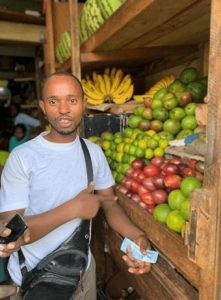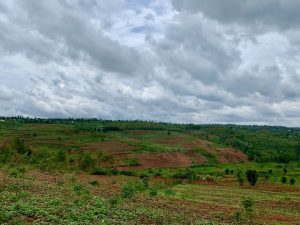Cooling for Life explores solar-driven cold stores for Rwandan farmers to minimise post-harvest losses. The aim of the project is to contribute to achieving sustainable development through climate solutions in sub-Saharan African (SSA) countries, starting with Rwanda.
Objectives
- Develop an optimal solar-driven cooling solution for Rwandan farmers to power cold stores and minimise post-harvest losses.
- Engage local stakeholders and consult with them to identify the specific local social, environmental and economic needs.
- Embed the cooling solution in a co-created and sustainable business model that ensures access and affordability of sustainable energy to end-users, supports sustainable livelihoods and promotes local and national economic growth.
Rwanda has huge agricultural resources but poor supply chain for food and other products, due to being landlocked and mountainous. The lack of cold chains for perishable foodstuffs is a major problem. Rwanda is a unique case where the energy access rate is relatively low (around 20%, which is below the average of 25% in SSA). Energy poverty in Rwanda is a major obstacle in developing the country’s resources.
The lack of food cold chains wastes 100-200 million tonnes of perishable foodstuffs every year in SSA. Food waste puts about 50.5 million people at risk of ill-health and mortality due to poor nutrition.
The Cooling for Life project uses adsorption cooling technology as a clean solution that has the advantages of:
- thermally driven refrigeration using low-grade solar heat without intermediate heat-to-power systems;
- using environmentally friendly refrigerating gasses such as water vapour and ethanol;
- low maintenance cost and skills due to the absence of moving parts; and
- ability to provide continuous refrigeration through a 24/7 off-grid operation.
 To assess the commercial viability of introducing the technology in Rwanda, this project investigates the associated capital cost and income generation potential of the new technology. The opportunity to access new markets and achieve higher prices for a larger volume of agro-products has the potential to offset initial investment costs. In Rwanda, smallholder farming is dominated by female farmers, and the lack of food cold chains limits the market opportunities for perishable foodstuffs. The Cooling for Life project will enable these farmers to achieve higher incomes; promoting more gender-balanced development. Working closely with the academics in the University of Rwanda, the team will transfer substantial technological and business knowledge to adopt state-of-the-art cooling technologies to enhance the efficiency of the food chain.
To assess the commercial viability of introducing the technology in Rwanda, this project investigates the associated capital cost and income generation potential of the new technology. The opportunity to access new markets and achieve higher prices for a larger volume of agro-products has the potential to offset initial investment costs. In Rwanda, smallholder farming is dominated by female farmers, and the lack of food cold chains limits the market opportunities for perishable foodstuffs. The Cooling for Life project will enable these farmers to achieve higher incomes; promoting more gender-balanced development. Working closely with the academics in the University of Rwanda, the team will transfer substantial technological and business knowledge to adopt state-of-the-art cooling technologies to enhance the efficiency of the food chain.
We are a collaborative, interdisciplinary team of academics and industry experts, from Aston University (Principal Investigator, Engineering), the University of Bristol (Co-Investigator, Management), the University of Rwanda and local partners.
The expected outcome of this project is a virtual pilot plant using computer simulation alongside a sustainable business model for the developed technology. This will enable us to identify the optimal technology mix according to the environmental conditions as well as the societal needs.
Building on the current GCRF project, we hope to make our sustainable business model a reality through building a pilot 4 m2 cold room plant driven by solar-thermal energy. We are therefore seeking further funding to take this project to its next phase and deliver a sustainable cooling solution to support the livelihoods of farmers in Rwanda.
Read more about the research being undertaken in the University of Bristol Business School.


